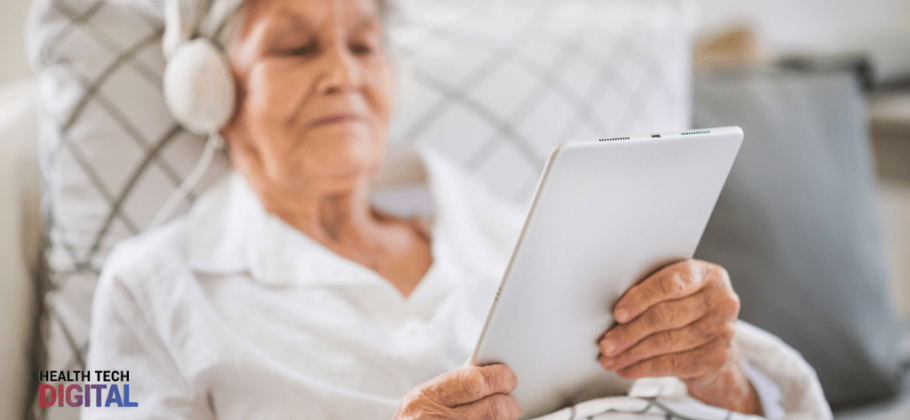Baroness Blackwood speaks at the CogX the festival of artificial intelligence (AI) and emerging technology.
At the CogX the festival of artificial intelligence (AI) and emerging technology on 12 June 2019, Baroness Blackwood gave a speech about how the UK is busy implementing its plans for the NHS Healthtech.
Cardiovascular disease costs the UK economy £29.1bn, diabetes £23.7 billion, mental illness £94 billion and cancer £18.3 billion, but these figures do not begin to convey the effects these illnesses have on peoples’ lives. The NHS turns 71 this year, and can be extremely proud of all its accomplishments with an amazing work-force and world-leading care. The NHS also has the best medical researchers and innovators on the planet.
With the huge growth in chronic disease however, the NHS was never designed to be able to deal with the demands that they face with the growing numbers of patients and treatments. Chronic care represents over 80% of the healthcare expenses. With the growth and innovations new technology has brought regarding diagnosis and treatments, care delivery structures have taken a strain regarding the delivery of diagnosis and treatments. From making an appointment with a GP, to seeing a specialist and receiving the results and treatment of the prognosis, it is a very timeous process and causes strain on the NHS.
Blackwood shared her personal struggle having a rare disease that was only diagnosed after 30 years, and how she knows the frustrations and difficulties people go through waiting for treatment and needing support along the way. She is very encouraged to see that the NHS are shifting their perspectives and are now designing their systems from the patient’s perspective, and not only from the medical perspective.
Healthtech has been changing the way the NHS works and treats its patients, from video consultations to diabetic care packages. The NHS are helping patients manage their conditions and be more involved in managing their symptoms.
The various devices that are available help patients monitor their conditions like breathing, blood pressure and heart rates. With the ground-breaking technology and Artificial Intelligence being utilized, there will be a 24-hour connection between patients and the professionals monitoring them.
The Technology Integrated Health Management (TIHM) is a study involving dementia is using Artificially Intelligent Systems (AIS) is enabling clinicians to monitor patients 24/7. This is ground-breaking as the patients and carers will receive the care and support they need right in their homes, whilst being more independent.
With the use of devices like tablets, doctors can assist patients in real-time which alleviates the need to make doctors’ appointments months in advance and ultimately frees time and resources The NHS Long Term Plan will focus on digital-first primary care which will free up staff and create more opportunities to improve and speed up diagnosis and treatment.
With the help of the technology and AI, patients can be diagnosed and assisted without being in the same room as the doctor. Several specialists will be able to look at cases at the same time, because of the network of connected care. Early diagnosis will be able to be made before the health issue become more serious.
766 patients involved in a trial which was conducted in New York at Memorial Sloan Ketttering Cancer Centre, were given the opportunity to test a mobile application. This app reported the side effects and symptoms of the chemotherapy treatment as it was being administered. The doctors and nurses were able to monitor the patients and the app notified them f any additional treatment was necessary. The nurses received an email if the side effects caused by the treatment were worsening and they were
then able to treat the patients or arrange for the doctor to see them. Patients using this tool lived 5 months longer than those who did not, and their quality of life was improved.
Within 10 years, it will be normal practice to use an electronic tool to communicate between patients and clinicians, making diagnosis and treatment not only faster, but more effective.
The NHS is at the forefront of digital health, and their social care programmes are one of the largest in the world. The NHS’ first priority is to get the infrastructure in place so that the data that feeds AIS is in the correct format and is protecting the systems.
Along with the correct digital framework, the NHS need to make sure that all staff involved are trained and uplifted to work with the system to make it effective. Health Education England will be vital to assist in this regard.
NHSX and Accelerated Access Collaborative are working together to make the digitisation of health and care run smoothly.
They are focusing on 3 aspects of the digital health systems. Firstly, they want to reduce the time clinicians take to access data on the NHS system. Secondly, they want to make it easier for patients to access services directly from their smartphones. And thirdly, they must ensure that diagnostic information can be reliably and safely accessed from wherever a patient or clinician is within the NHS.
At the Institute of Cancer Research, Blackwood spoke to researchers about the potential for AI to increase the speed and efficiency of drug discovery.A database that ICR created, uses AI to unearth the cancer treatments of the future. Their system is called canSAR and is the largest disease database of its kind and has almost 5 million experimental results. This data is available to researchers around the world, and can potentially save many lives.
It is of utmost importance to use the data responsibly, and ensure it is protected along with the patients’ personal information. This being the motivation, last December the NHS published 5 guidelines for NHS data. They also made plans to secure a national centre of expertise that will support NHS with high-quality legal expertise.
Blackwood stated that they have tested and developed these plans and principles for the centre, and have enrolled the support of a range of stakeholders from academic research, life sciences industry and NHS organisations. Article Source: https://www.gov.uk/government/speeches/embracing-ai-and-technology-to-improve-patient-outcomes












